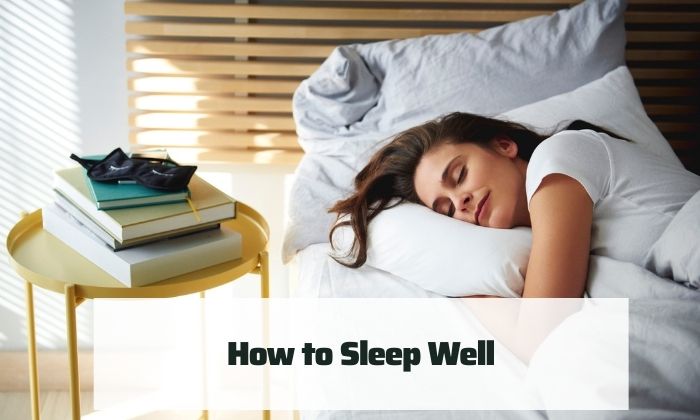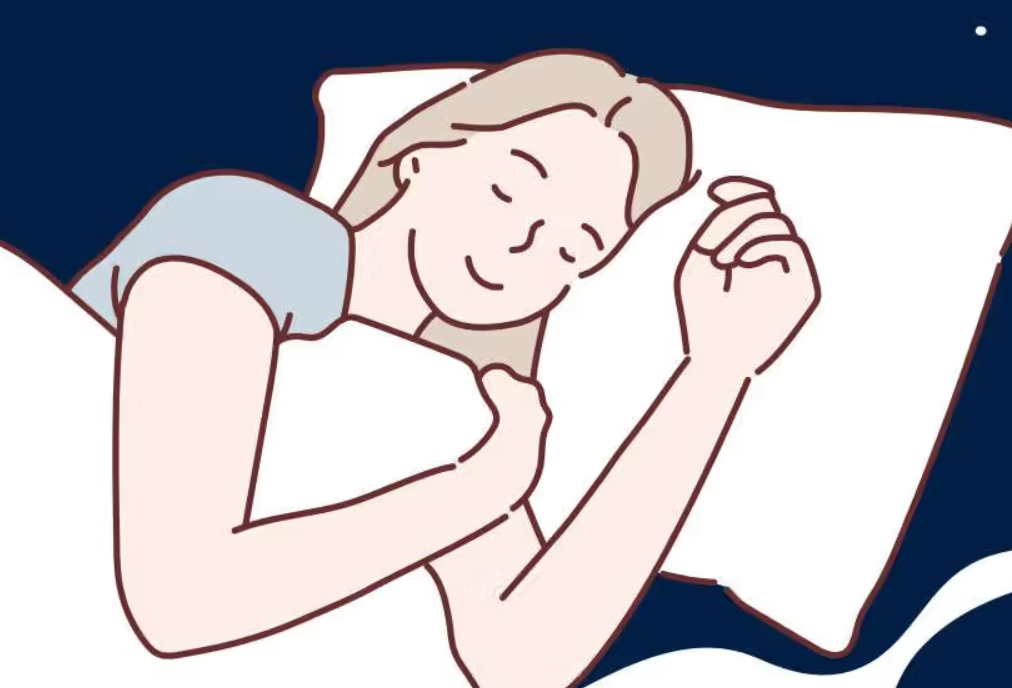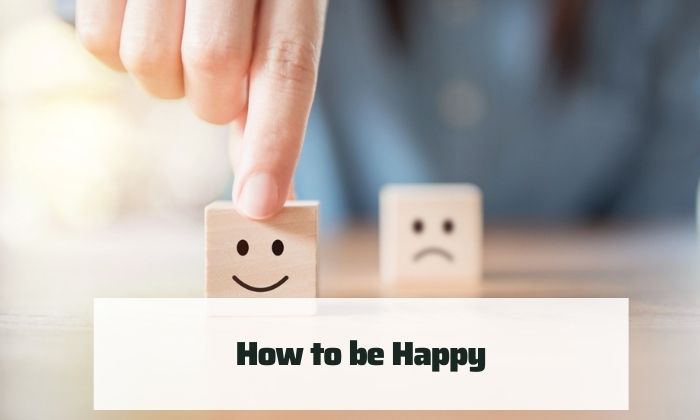How to Sleep Well – 5 Effective Tips for Better Sleep

Consider all of the factors that can disrupt a good night’s sleep, from work stress and family responsibilities to unexpected challenges, such as illnesses. It’s no surprise that getting enough quality sleep can be difficult at times.
While you may not be able to control the factors that interfere with your sleep, you can develop habits that promote better sleep. Begin with these straightforward suggestions. So, how to sleep well? See now.

Do you need to get better sleep?
When you wake up tired and foggy-headed, it can be difficult to remember things, such as where you left your keys when you’re rushing out the door, or you may not feel as focused or productive at work as you could be.
Being tired also disrupts your hunger hormones — a sleepy brain loses executive function, making it difficult to make healthy food choices. That is, if you hit a slump late in the afternoon, you are more likely to reach for a candy bar, a bag of chips, or other sugary or salty snacks that would not be approved by a nutritionist.
Not surprisingly, by the time you get home, you may be irritable or cranky, as well as tense. Not the best state of mind to drift off peacefully a few hours later.
To feel your best during the day, you must get enough sleep at night. Unfortunately, you won’t be able to wave a magic wand to make that happen. However, there are some simple steps you can take to improve your sleep.
How to sleep well
Your bedroom should feel like a stress-free, distraction-free haven. While creating the right environment is, to some extent, a matter of personal preference, sleep experts offer these scientifically supported sleep hygiene recommendations.
1. The ideal room for sleep is cool and dark
The majority of experts agree that the ideal temperature range is between 60 and 67 degrees Fahrenheit. According to a National Sleep Foundation poll, 73% of Americans believe that the darker the room, the better. Shades, curtains, or blinds are used by 65 percent of people to block out unwanted light.
2. Peace and quiet make for bedroom bliss
74% of Americans believe that silence is essential for getting a good night’s sleep. Having said that, many people rely on “white noise” or some other type of ambient sound to help mask distracting noises such as car horns or highway traffic.
You can also use a fan (which will also keep your room cool) or one of the many soothing sleepcasts or sleep music from the Headspace app’s Sleep experience. Sleepcasts are 45-minute recordings that can help you create a relaxing, peaceful environment for sleep. Sign up and start using the Headspace app to help create an environment conducive to a restful night’s sleep.
3. Choose the bedding (and sleep position) that’s best for you
A good night’s sleep requires a comfortable mattress and pillows, but whether they’re soft or firm is entirely up to you. The pillow you select may be determined by your preferred sleeping position. If you sleep on your side (as most people do), your pillow should support your head, neck, and ear, as well as your shoulder. People who sleep on their backs should consider using a thinner pillow to reduce neck stress.
4. Declutter your bedroom
If your bed feels dreamy but your room is a shambles, you may be more prone to sleep problems. According to a study presented at the SLEEP conference in Seattle in June 2015, those who were surrounded by clutter were more likely to have a sleep disorder. What your eyes see when you walk into a room can influence whether or not you fall asleep easily. As many of our parents used to say, “Clean your room!”
5. Pick the perfect pillow for you.
If you have allergies, you should think about pillow filling. Natural fills such as feathers are available, as are synthetic fills such as rayon, foam, or latex. Look for hypoallergenic pillows to reduce the possibility of nighttime congestion and sniffles, which can keep you awake.
5 suggestions to help you de-stress and sleep better
What is it that keeps you awake at night? It’s usually an active mind caught up in worry and anxiety, agitation, or even sadness. Here are a few methods for de-stressing so you can sleep more easily.

1. Try some gentle yoga poses before bedtime
According to a survey conducted by The National Center for Complementary and Integrative Health, more than 85% of those who practiced yoga reported less stress and 55% reported better sleep. These 7 restorative yoga poses for before bedtime have been shown to improve relaxation and relieve tension.
2. Start a gratitude list each day
Many studies have found a link between gratitude and feelings of well-being. According to Robert A. Emmons, professor of psychology at UC Davis and a leading scientific expert on the science of gratitude, practicing gratitude can have many positive effects on our lives, including lowering blood pressure, lowering risks of depression and anxiety, and creating the right conditions for better sleep.
Consider keeping a gratitude journal, in which you write down a few things you’re grateful for a few times per week. There is no right or wrong way to go about this, but here are some pointers to get you started.
3. Bathe before bedtime
A warm bath or shower an hour or two before bed has been shown to relax both the body and mind, lowering both heart rate and blood pressure in one study. Heat relaxes tense, tired muscles and aids in stress relief.
4. Read yourself a bedtime story
Reading is an excellent way to unwind. According to University of Sussex research, just six minutes immersed in a story can reduce stress by 68 percent. Dr. David Lewis, the cognitive neuropsychologist who conducted the study, described getting lost in a good book as “the ultimate relaxation… you can escape from the worries and stresses of everyday life…”
In the best-case scenario, it’s a book — one of those hardcover or paperback volumes with the pages sewn together — rather than a Kindle, iPad, or other backlit device. If you don’t have a book to read right now, try listening to one of Headspace’s sleepcasts. Choose from a collection of descriptive narrations in which soothing voices guide you through relaxing, dreamy landscapes, allowing you to unwind and power down gradually.
5. Get some Headspace
Many Headspace members said they practiced meditation in the evening, including before bed, to help them de-stress and fall asleep, which was one of the inspirations for the launch of Sleep by Headspace. While meditation does not purge or stop thoughts, it does teach you to be more at ease with them and more compassionate to yourself and others. Mindful meditation can help reduce stress and pave the way for a good night’s sleep in this way.
See more useful article at my website y2kcenter.org.




